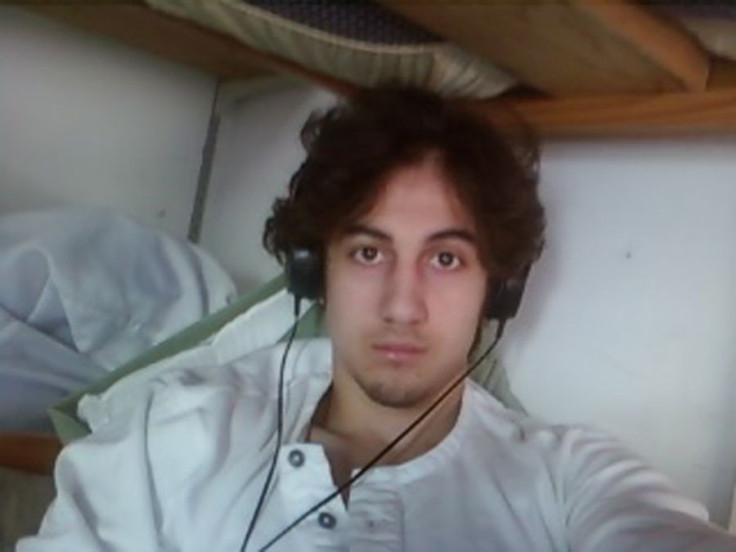Boston Bomber Dzhokhar Tsarnaev Requests New Trial In 'Placeholder' Filing

Dzhokhar Tsarnaev has filed a motion for a new trial in the Boston Marathon bombing case in which he was recently sentenced to death. The 21-year-old prisoner and his attorneys submitted a preliminary motion Monday arguing that a new trial was needed for sake of fairness. It's a placeholder to meet court requirements and will be followed by additional filings before or on the Aug. 17 deadline, NECN reported.
"A new trial is required in the interests of justice and judgments notwithstanding the verdict are required as a matter of evidentiary insufficiency," the motion read.
BREAKING: Dzhokhar #Tsarnaev files motion for new trial. Read it here: @NECN pic.twitter.com/8D089peSGH
- Alysha Palumbo (@AlyshaNECN) July 6, 2015Tsarnaev was found guilty in April on all 30 federal charges stemming from the 2013 Boston Marathon bombing. Police said he and his late brother, Tamerlan, were motivated by Islamist extremism to set off explosives at the finish line of the annual race. The bombs killed three people and wounded more than 260 others. Later that week, while on the run, the brothers carjacked a vehicle and fatally shot a police officer at the Massachusetts Institute of Technology in Cambridge.
Seventeen of Tsarnaev's charges carried a possible death sentence, which the jury decided for in May. He was formally sentenced on June 24 during an emotional day in court where two dozen victims read statements and Tsarnaev apologized for his actions. "I am sorry for the lives that I've taken, for the suffering that I've caused you, for the damage that I've done. Irreparable damage," CNN reported he said.
Soon after, Tsarnaev was transported to the U.S. Penitentiary in Florence, Colorado. Unless he has a successful appeal, he'll be executed at the federal prison in Terre Haute, Indiana.
One way or another, more time in court is likely for Tsarnaev. Since 1988, only three of the 80 people the federal government sentenced to death have actually been executed, Boston.com reported. His lawyers were expected to build a case around sealed evidence, juror bias or the judge's decision to keep the trial in Boston.
© Copyright IBTimes 2025. All rights reserved.






















